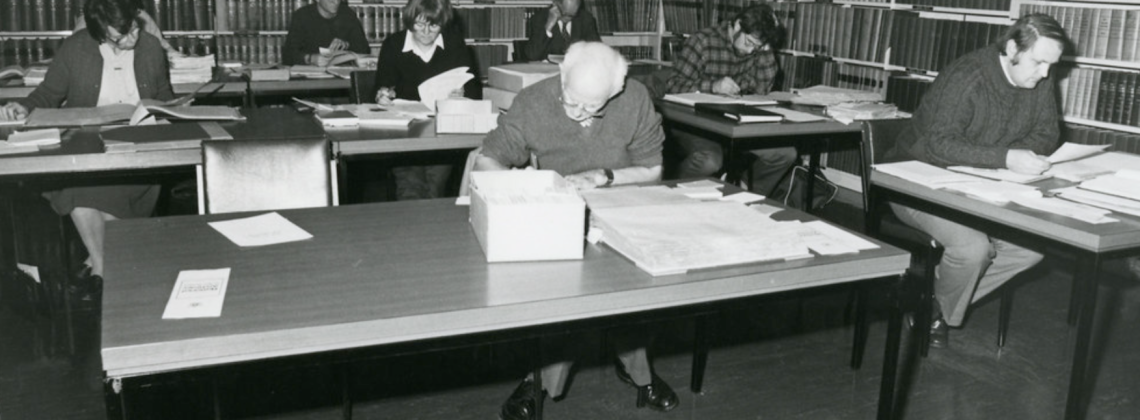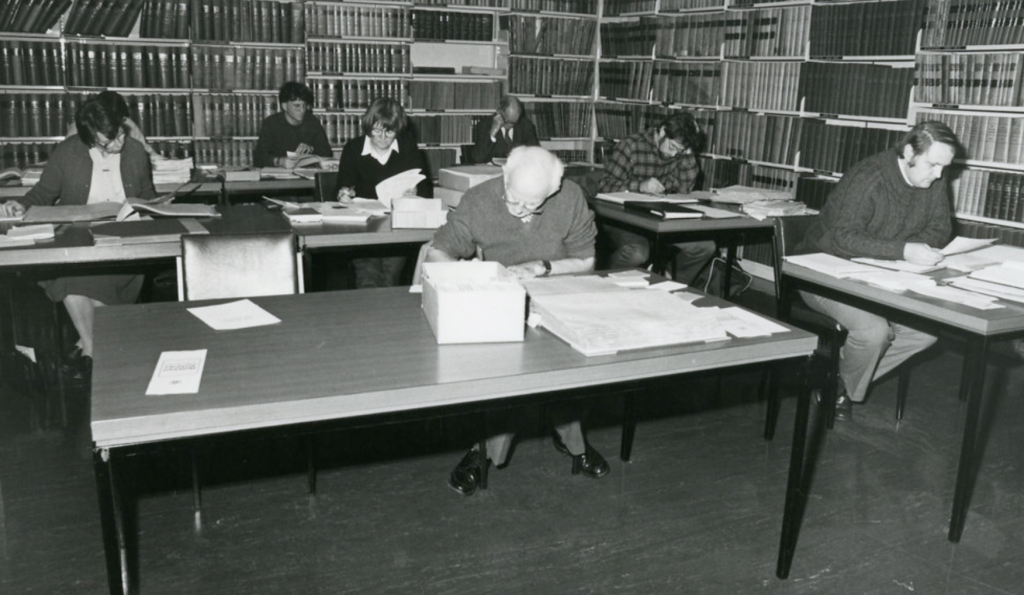

When every day is Christmas morning
I’ve spent most of 2024 in archives. It’s been week after week in cheap hotels and Airbnb rooms. In order to stretch my research budget as far as it will go I’ve resorted to old graduate school eating habits—bad coffee, protein bars, a jar of peanut butter, a loaf of bread, and a bag of apples or oranges. (I went out to dinner last night with an old friend. When he texted me the name of the restaurant, I texted back, “Is it expensive?”)
Sometimes I’ve had a car on my journey. Other times I’ve gotten around on foot or via public transportation. I caught a nasty cold last week, which meant I spent far too much time and money at a Walgreens. I am writing this essay in a $59 a night hotel located just off a highway exit ramp. I can hear the semis rumble past my window, and I can’t seem to figure out how to get the right temperature in my room.
Next Friday, when I finish this leg of my travels, I will have visited nine archives scattered across the country, from Columbia (MO) to Washington D.C., from Nashville to Grand Rapids.
And I have loved every minute of it.
I’ve met all kinds of folks—good folks—on my journey. I’ve run into friends and scholarly acquaintances. I’ve met local people doing research on their family histories. One guy who sat across the table from me for a couple of days asked me if I wanted to join him for a lunch of fried catfish—his treat. I told him thanks but no thanks. I’ve never eaten fried catfish and didn’t think the middle of an archive visit was the time to start.
Archivists and librarians are some of the best people in the world. One librarian, after hearing me talking about my sparse living conditions, offered to pick up some groceries for me (I politely declined and was embarrassed that I had made it sound like I was in such dire straits!). Another archivist packed me a “goodie bag” filled with pastries from an office party held earlier in the day. In February I visited an archive that offered to open early so that I could make up the hours I missed when the facility was closed for a few days due to a snowstorm. (Thanks for getting up, Connie!) Next week I will be at a library where the staff is permitting me to work until 11:50 p.m. each night.
I tend to be a plodder in the archives. While some researchers are frantically taking pictures of documents with their phones, I am reading them. I realize that snapping pictures saves time and money, but I’m afraid it will take me longer to process and organize the images on my phone than to just take notes while I am present.
Another reason I prefer reading over snapping is because it allows me to immerse myself in the experience. The serendipity of the archive is like a drug. One never knows what is inside the Bankers Box sitting on the cart waiting to be opened. I get an adrenaline rush when I open a new box. I can only compare it to a kid opening up presents on Christmas morning. Every new manilla folder just might reveal a document that will either give evidentiary support for my working thesis or force me to think about my project in exciting new ways.
When I am in the archives I want to spend time in the presence of these documents. Old letters, diaries, greeting cards, and memos are my tickets to the past. I want to hold the documents, feel the paper between my fingers, and reflect on the historical context that gives them life.
I want to connect the document in my hand to the other documents I will find that day. I transcribe some of what I am reading and add notes to remind me where this particular piece of the past fits with the larger argument of my project. For me, this is an essential part of the writing process. I will often spend a few minutes crafting prose around the information gleaned from the documents. Sometimes I’ll find something in one collection that will lead me to a collection I would have missed if I was just spending my time taking pictures.
I know this may all sound rather strange. But if Harvard historian Jill Lepore can affectionately stroke a lock of Daniel Webster’s hair, then I can have a quasi-spiritual moment reading an exchange between Ron Sider and Tony Campolo!
John Fea is Executive Editor of Current
John, have you done the Wheaton archives yet? I’d consider your company a good exchange for paying for us to dine at an expensive restaurant.
This article is splendid. I wish you all the best discoveries. Oh, and find a good time for you and investigate fried catfish, for sure.